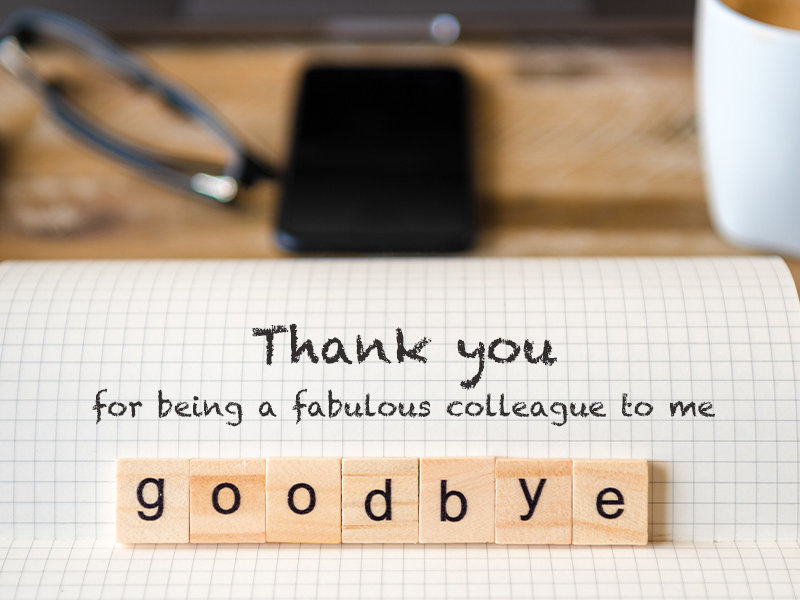
For most people, an office is a place where they spend their days working and friendships made. Whether you work in an office or from home, there may come a day when you need to say goodbye to your co-workers. These farewell messages can be difficult to write and send because there are so many unknowns: When do I send it? What language should I use? How do I make this "mine"?
It isn't just important for you to say goodbye, it's also imperative that your co-workers know how much they mean to you. Saying farewell can be difficult and sometimes even awkward, but it's necessary in order to maintain good relations with the people who were so dear and supportive to us during our time together at work.
You should say goodbye to your colleagues in person, but there may be times when you can't make it work. This is where farewell messages come in really handy. You can write these messages for a number of reasons: If someone leaves the company or moves on to another team, then they would benefit from hearing that they're missed. You may also want to send a message when you have to say goodbye after being assigned new tasks, because it can be difficult for your team to get accustomed to someone else taking over what you did.
There's no hard and fast rule about sending farewell messages, but there are some things that you should consider. You can send a message anytime, but it's best to wait until two weeks before they leave. This will give them time to prepare and say goodbye on their own terms instead of leaving things up in the air.
Sending a farewell message can be tricky, especially if you have never done it before. You want to make sure that you leave your colleague with the right impression and saying goodbye is already difficult enough. Here are some general rules about what language should go into these messages:

If you're sending a message yourself, use ‘I’ instead of ‘we’; if it's about someone else, don't refer to them in the first person (use 'they'). Be clear and concise, no one wants to read lengthy goodbye emails. Try something like this for inspiration: "Dear Jane Doe, I'm writing because I wanted to say thank you for all that you have done over the years we have worked together. I've really enjoyed getting to know you and am grateful for your hard work, dedication, and contributions that made our team so strong. If there's ever anything I can do for you in the future, please don't hesitate to let me know."
When it comes to saying goodbye, you want your farewell message to be as personal and unique as the relationship that is ending. You should take into consideration what kind of person they are; for example, if they like humour then try incorporating some jokes or memes in the message. Here are a few ways that you can make your message more personal:

Work can be stressful, and we often find ourselves feeling drained at the end of a long day. But it doesn't have to be this way. With some creativity and good old-fashioned politeness, you may be able to leave your colleagues with an excellent final impression that will make them feel appreciated for all they've done – even if there's no hope of ever seeing each other again. It's hard not to think about how much our work relationships affect us on a daily basis; try taking the time now to wish farewell in person before leaving or send them a message letting them know how grateful you are for their help over the years. We're sure they'll appreciate hearing from you one last time as well.